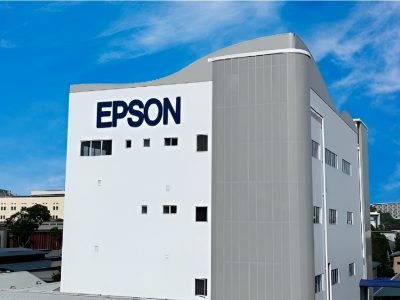4 Reasons Why Epson’s Digital Textile Printers are Helping Redefine the Future of the Garment Industry

The textile and clothing industries have always played an important role in shaping diverse cultures. As they continued to evolve, these industries have given rise to a dynamic global marketplace.
Seasonal trend forecasts from textile and fashion designers, made popular by marketers and society fashion icons, have perpetuated a cycle of creation, buying and selling across markets.
The great success of the industry goes to the ‘creatives’ in this setting. Not only did they take over in producing unique designs, but also in finding new ways to adapt and evolve production and operations to take advantage of opportunities.
One such opportunity is the use of technology through the digitalisation of textile printing to address the increasing demand brought about by the expansion of the textile market.

Here are four reasons why digitalisation in textile printing is changing the way businesses work in the textile and garment industries:
- Reduced environmental impact
Using analog technology consumes massive resources and generates waste as a by-product, expending great amounts of water and energy. These contain toxic chemicals used for manufacturing and contribute to environmental damage.
With digital textile printing using Epson’s technology, 90% less water is used and 30% less power is consumed. This is certainly a significant reduction on costs and in environmental impact for a more productive, cost-efficient, and sustainable direct-to-garment business.
Epson’s inks for its dye-sublimation transfer printers and direct-to-garment printers are all Oeko-Tex Eco Passport Certified. This is a worldwide safety certification system in which textile products are tested for harmful substances.
Epson is the first company in Japan to achieve this certification in 2016 for its UltraChrome DS Inks. This is a true testament to Epson’s quality standards in using colourants, auxiliaries, finishing assistants, and other textile chemicals that are safe and sustainable for textile production.
As more and more textile printing businesses become environmentally conscious, finding the right partner for operations is critical to make it big in the textile printing industry. Epson will continue seeking to contribute to the development of a sustainable society by providing customer value in the form of reduced environmental impacts across the life cycles of its products and services.
- Mass customisation with shorter production time
The industry’s continued progress will lead to new workflows designed to meet demands in a more productive and efficient way. This is the reason why digitalisation in textile printing today is the way to go for enterprises, simply because of its capability to provide higher production yields with quicker turnaround time.
With digital textile printing, businesses are able to accommodate sudden delivery requests with shorter lead times which are favourable to many of the textile and garments industry players.
Epson’s SureColor™ F-Series can deliver high-speed printing while enabling output quality and durability on the widest range of media. It has Epson’s revolutionary PrecisionCore TFP printheads which are considered to be one of the fastest inkjet delivery technologies in the world.
- Cost efficiency
More enterprises are realising how digital printing impacts costs by running on less electricity, water, and even in manpower resources than traditional analog printing.
Epson’s digital textile printers are powered by PrecisionCore printheads with piezo elements that can self-diagnose capabilities. This means that businesses who use Epson’s technology for digital textile printing do not have to worry about periodic maintenance, since it is made to be more reliable and less costly in the long-run.
- Limitless creative freedom
Going digital truly stretches the designers’ creative freedom to print anything imaginable and on-demand. The technology allows them to reproduce photos and even complex designs, giving designers endless variations and options that suit their respective tastes.
Epson’s F-Series brings every designer’s creative freedom to life with its top-notch printing quality, providing vibrancy and intense colours to the final output. From the basic CMYK printing to fluorescent print demands, Epson’s F-Series line can produce an extensive gamut of colours with nuances captured and reproduced more accurately, showing off the designers’ unique ingenuity.
More than the output-based benefits of going digital in textile printing, a cleaner future for the environment is the promise. As consumers and buyers alike are starting to become more conscious of their environmental choices, the true impact to the business not just in terms of quality output but also sustainability will be the deciding factor.
Through the years, Epson has used its experience and expertise to develop products like its digital textile printers that help businesses run more efficiently, more productively and in ways that impact the environment less negatively.
Learn more about our textile printers on the website and on the blog or contact your local Epson Authorised Dealer for more information.
Posts You May Like
Get Social With Us



